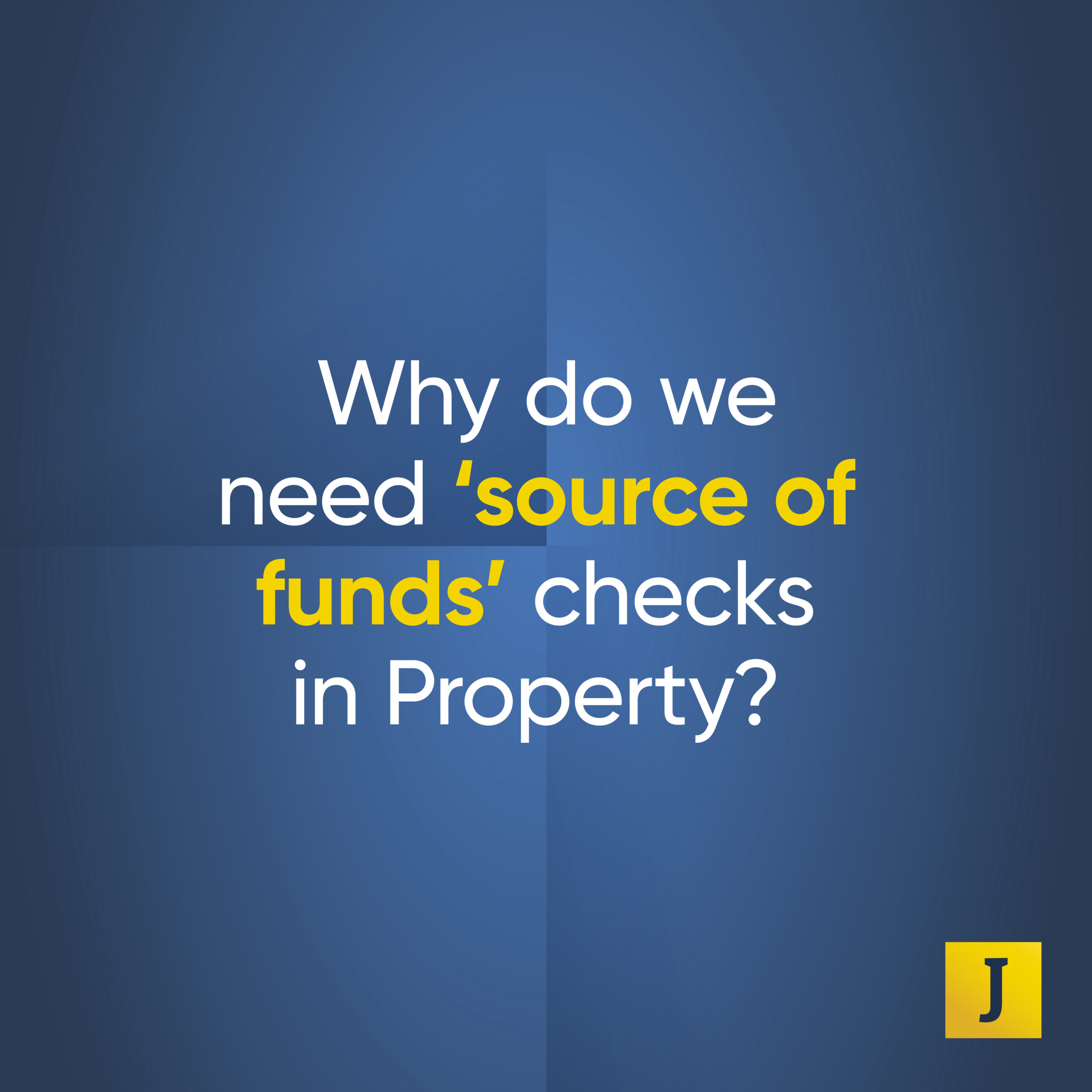Progressing through a property purchase can be an intimidating process and can often feel somewhat intrusive.
As part of the conveyancing process, you are required to provide in-depth information about your finances, and although it may feel like your Solicitor is snooping on your recent purchases, that isn’t the case!
During these financial checks, your Solicitor is ensuring you have proof of funds and the source of funds to get the ball rolling on your purchase.
What is ‘source of funds’?
Source of funds is simply proving where your money came from for your deposit.
Solicitors have a legal duty to ensure that any, and all, funds used within a property transaction have come from a legitimate source and they are looking to establish the original source of the funds, not the mere availability of funds in a bank account.
Why is it important to check source of funds?
If the source of funds is not checked properly by a Solicitor and a money laundering issue were to arise, there can be criminal sanctions for the Solicitor for not checking correctly.
Between 2004 and 2015 £180 million of UK property was subject to criminal investigation as suspected proceeds of corruption, and in 2017, 160 properties worth over £4 billion were identified as being purchased by high corruption-risk individuals.
What would a Solicitor need for proof of funds?
In order to complete their money laundering and due diligence requirements, your Solicitor will ask you to provide evidence of your source of funds. This can include the following:
- Bank statements
Your solicitor will need full PDF statements which have been downloaded from your account, they must show your full name and address. The statements should be from the latest 6 months, but you may be asked to provide anything up to 12 months of statements to establish the source if it is not clear enough - Gifted Money
If you are being gifted money from your parents/ family, your solicitor will need to run some ID checks and will also need bank statements from the person gifting the money, showing where the money is coming from - Inheritance
If you have inherited money, your solicitor will need a copy of the estate accounts as well as a bank statement showing the monies being transferred into your account - Sale of property
Your solicitor will need proof of sale evidence, such as correspondence from the Solicitor who acted on your behalf on the sale and a bank statement showing the monies being transferred into your account - Pension withdrawal
Your solicitor will need a letter showing your pension withdrawal and a bank statement showing the monies being transferred into your account - Divorce settlement
Your solicitor will need the original/ certified copy of court order or settlement
What is not acceptable to prove source of funds?
The requirements for providing source of funds documentation are relatively straight forward, however, it is important to note that not all formats are accepted.
Some of the formats that will not be accepted are:
- Screenshots/ photos of bank account statements from a phone
- Statements from savings accounts only showing internal transfers being made, as this does not show where the original source of the funds have come from
How can Jefferies Solicitors, Essex, help you?
To help you understand the minefield of purchasing a property, we have an expert team of conveyancing professionals who are here to help you every step of the way.
If you’re ready to kickstart your property purchase or perhaps you have a few questions you’d like to ask, call our team on 01702 332 311 or fill out a contact form.
The contents of this article are for the purpose of general awareness only. They do not purport to constitute legal or professional advice. The law may have changed since this article was published. Readers should not act on the basis of the information included and should take appropriate professional advice upon their own particular circumstances.

